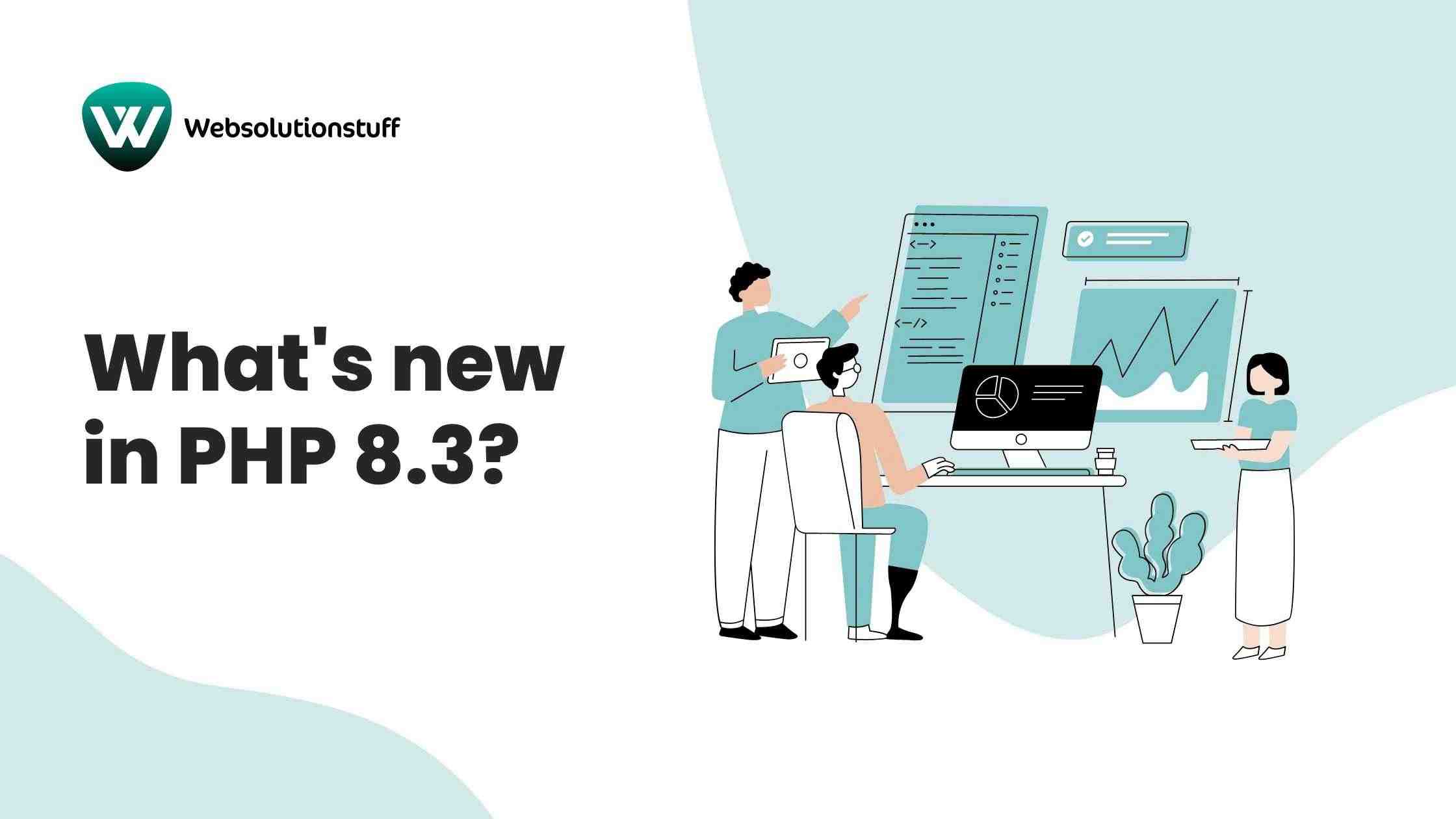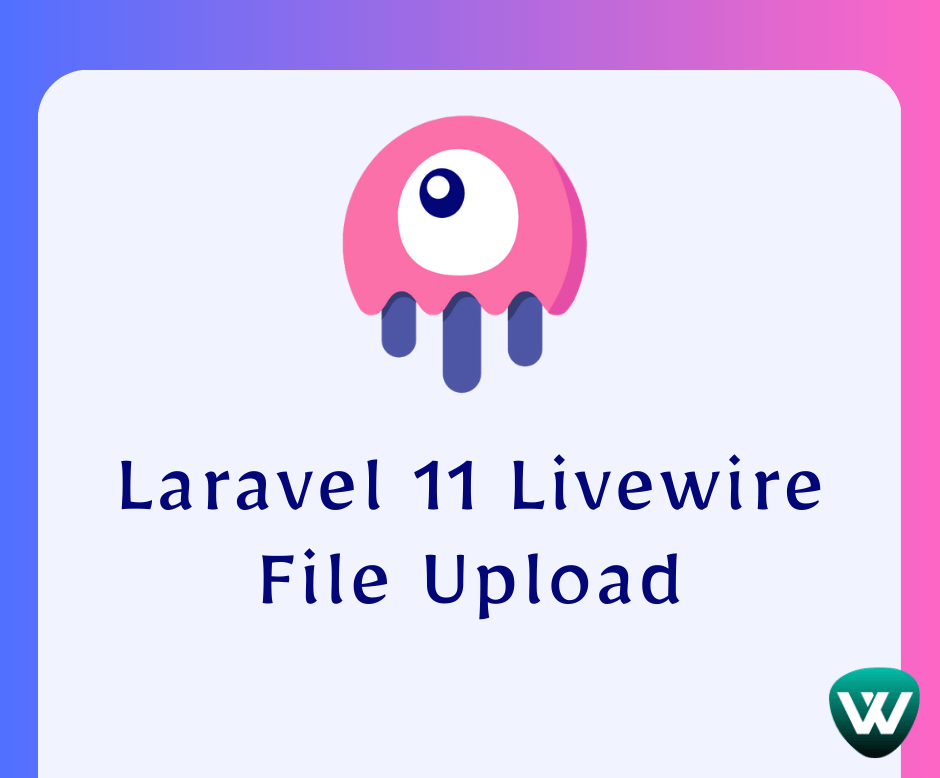PHP 8.3: Release Date and New Features
Websolutionstuff | Jan-12-2023 | Categories : PHP
Welcome web development enthusiasts! Here, we are going to talk about the much-awaited PHP 8.3.
It is packed with a myriad of enhancements and new features, so developers are buzzing with excitement.
It is scheduled to launch with interesting updates, and it will redefine the programming world. Join us on an exploration of the release date, key features, and the impact PHP 8.3 is set to make in the dynamic web development world.
Now, we will see PHP 8.3 release date, and PHP 8.3 new features.
For instance, this page lists all the accepted RFCs for PHP 8.3.

Table of contents
- When will PHP 8.3 be released?
- PHP 8.3 changes and new features
- json_validate()
- Improved unserialize() error handling
As per the PHP 8.3 preparation chart, PHP 8.3 will be released on November 23, 2023.
| Date | Release |
|---|---|
| Jun 08 2023 | Alpha 1 |
| Jun 22 2023 | Alpha 2 |
| Jul 06 2023 | Alpha 3 |
| Jul 18 2023 | Feature freeze |
| Jul 20 2023 | Beta 1 |
| Aug 03 2023 | Beta 2 |
| Aug 17 2023 | Beta 3 |
| Aug 31 2023 | RC 1 |
| Sep 14 2023 | RC 2 |
| Sep 28 2023 | RC 3 |
| Oct 12 2023 | RC 4 |
| Oct 26 2023 | RC 5 |
| Nov 09 2023 | RC 6 |
| Nov 23 2023 | GA |
json_validate()
This RFC introduces a new function called json_validate() to validate if a string contains a valid JSON.
Instead of using json_decode() function to validate a JSON string. Now, you can use json_validate(). According to its RFC.
Returns true if the string passed contains a valid JSON, otherwise returns false.
json_validate('{ "foo": "bar", }');
// Syntax error
echo json_last_error_msg();
Read More: PHP RFC: json_validate
PHP's current error reporting in unserialize() is very inconsistent, making it hard to reliably handle errors that occur during unserialization. In PHP 8.3 new \UnserializationFailedException will be added. Also, improve error handling.
Let's see an example:
try {
set_error_handler(static function ($severity, $message, $file, $line) {
throw new \ErrorException($message, 0, $severity, $file, $line);
});
$result = unserialize($serialized);
} catch (\Throwable $e) {
// Unserialization failed. Catch block optional if the error should not be handled.
} finally {
restore_error_handler();
}
In PHP 8.3, the error are handled is like the below code example.
try {
$result = unserialize($serialized);
var_dump($result); // Do something with the $result. Can appear in the 'try' right
// beside the unserialize(), because the 'catch' block is specific
// to unserialization and will not catch anything unrelated.
} catch (\UnserializationFailureException $e) {
// unserialization failed.
}
Read More: PHP RFC: Improve unserialize() error handling
PHP enthusiasts have much to look forward to with the upcoming release of PHP 8.3. With an expected release date that promises to step into a new era of web development, this update is set to redefine the way we code.
The new features, including improved type safety, new functions, and enhancements to performance and developer experience, are a testament to the language's commitment to progress and innovation.
PHP 8.3 is going to make your programming experience more efficient and enjoyable.
You might also like:
- Read Also: CRUD Operation In PHP
- Read Also: Laravel 9 CRUD Operation Example
- Read Also: Laravel 10: New Features And Release Date
- Read Also: How to Download File on the FTP Server Using PHP
Recommended Post
Featured Post

Node.js Express CRUD Example w...
Hello Guys, In this tutorial we will see how to perform Node js Express CRUD example with mysql. Node js Express ...
Aug-02-2021

How To Generate Barcode Using...
In this article, we will see how to generate barcode using javascript. We will use a javascript plugin to generate...
Nov-01-2022

How to File Upload in Laravel...
Hello, laravel web developers! In this article, we'll see how to file upload in laravel 11 Livewire. Here, we'll...
Jun-10-2024

Github And Git Commands
GitHub, Inc. is a United States-based global company that provides hosting for software development and version control...
Jul-15-2020